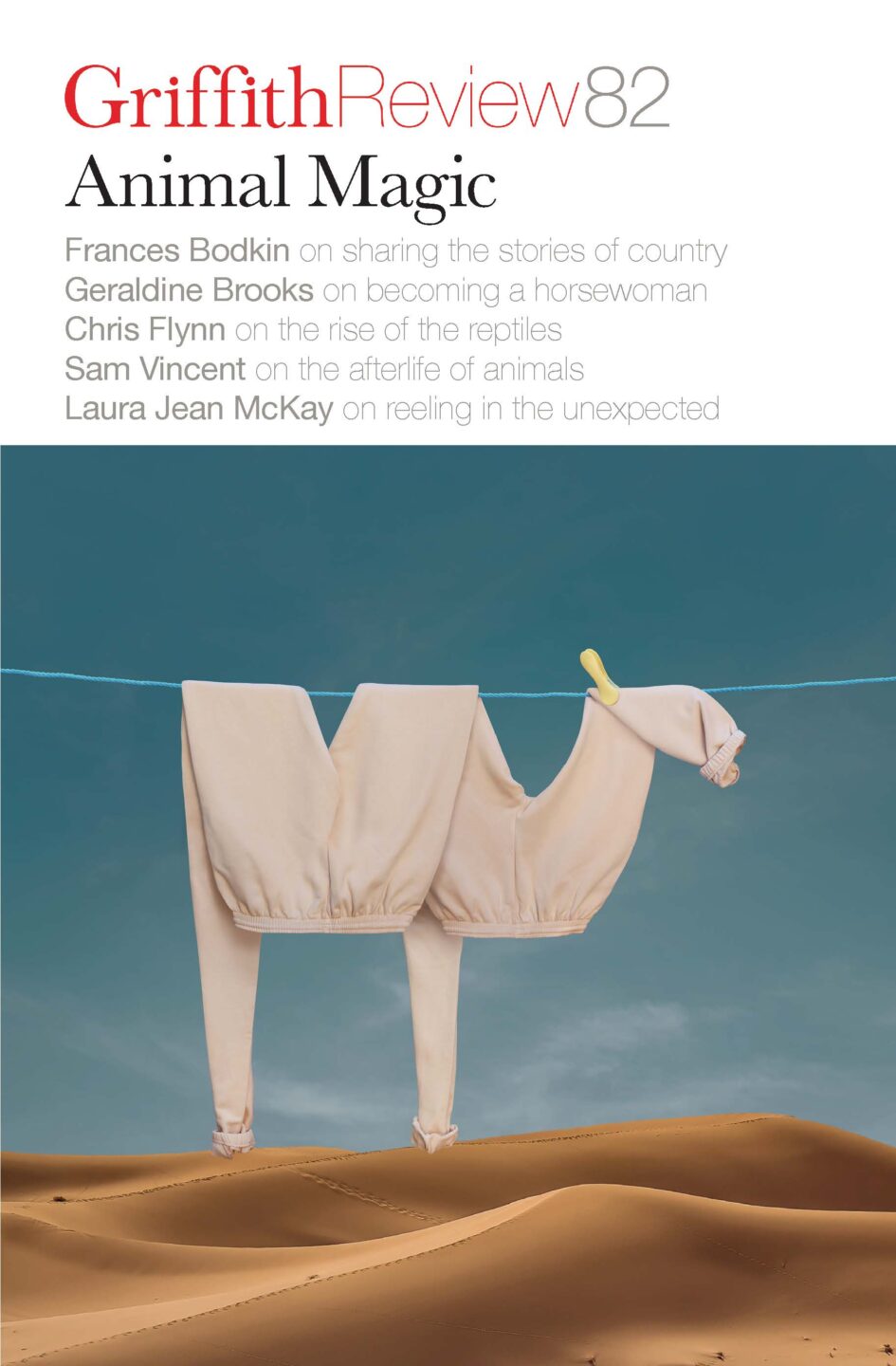Featured in

- Published 20231107
- ISBN: 978-1-922212-89-4
- Extent: 208pp
- Paperback, ePub, PDF, Kindle compatible


Already a subscriber? Sign in here
If you are an educator or student wishing to access content for study purposes please contact us at griffithreview@griffith.edu.au
Share article
About the author

Elise Derwin
Elise Derwin is an award-winning photographer based in Lismore, New South Wales, who specialises in documentary and editorial photography. She has also worked across...
More from this edition

As dead as
Non-fictionAs a Mauritian person, I’ve always known about dodos. I first heard about them from my dad’s family. The dodo was only ever found in Mauritius, and I naively believed that everyone knew that. But when I was relaying my experience of listening to the podcast to a group of friends, they were surprised to hear that the dodo was Mauritian.

A perfectly ordinary dachshund observes the problem of being
Poetry Breathing your small inauspicious body almost into incomprehension, supine and crouched, lost to the world, or to that portion only dachshund speech describes, your propulsive unyielding deeds...

Dog people
Non-fictionWe’re social animals, humans – from the wiring of our brains to the shape of our societies. If recent pandemic lockdowns taught us one thing, it’s that we need to be physically close to each other, to socialise not just as avatars or gigabits but as live, warm, fallible bodies. Our dogs knew this ages ago.